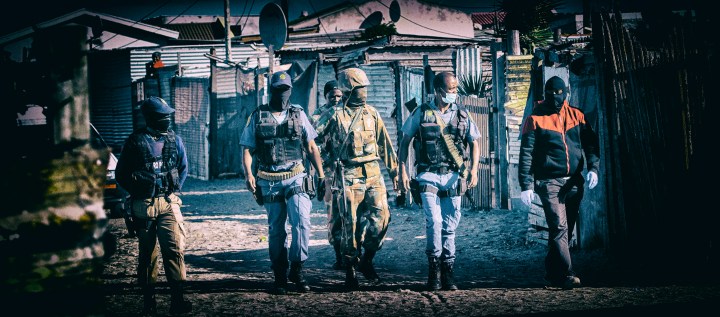WESTERN CAPE
Police reportedly using ‘sjamboks, hammers and irons to assault people,’ committee hears

When law enforcement finally appeared before the Covid-19 oversight committee of the Western Cape legislature, it was revealed that in the space of seven weeks the police watchdog body has received more than 80 reports about police behaviour during the lockdown in the Western Cape.
There have been 83 Covid-19-related cases reported to the Western Cape office of the Independent Police Investigative Directorate (IPID) for investigation on police actions during the lockdown. This was revealed during a briefing on police, security and police brutality in the Covid-19 oversight committee in the Western Cape legislature on Wednesday 6 May.
At a previous committee meeting, both IPID and the South African Police Service (SAPS) did not pitch up for their meeting before the committee, but on Wednesday, these two entities finally appeared.
IPID’s Western Cape head, Thabo Leholo, told the committee that between 26 March and 4 May, there had been 163 cases reported to the police watchdog. Only 83 of these cases were specifically related to Covid-19 operations by both the SAPS and metro police. These cases relate to:
- Two deaths as a result of police action. One was the death of Petrus Miggels of Uitsig in Cape Town. The other, according to IPID, was a protest gone wrong: police fired warning shots to disperse a crowd, and then discovered a man lying on the ground. IPID is awaiting the results of a post-mortem but an investigation is underway.
- There were 52 cases of assault reported.
- Thirty cases were reported of police discharging their firearms.
The lockdown has brought challenges, Leholo told the committee. One of these is that lockdown regulations mean IPID officials can’t access stakeholders like courts, police stations and complainants. Leholo also said the watchdog receives complaints from the public that are not IPID-related. Additionally, Leholo said police in the province had been reported using weapons including sjamboks, hammers and irons to assault people.
When the police themselves answered questions at the committee meeting, provincial police commissioner Lieutenant-General Yolisa Matakata said matters raised about policing will be investigated.
Matakata, who was appointed as provincial commissioner in December 2019, told the committee the police received complaints on social media, from the media and from other policing structures. She said there is regular communication between herself and station commanders over the Covid-19 pandemic, regulations and policing.
“I remind the members what kind of situation we are dealing with at this point in time and what kind of behaviour is expected of them,” the police commissioner said. Police officials would be investigated should they be implicated in any wrongdoing, she said.
On matters related to police work, all 151 police stations are equipped with personal protective equipment for up to seven days, said Brigadier Preston Voskuil, head of Organisational Development and Strategic Management. Police stations are getting refills of protective equipment twice a week to ensure there is no shortage, Voskuil said.
Issues reported by the police during lockdown include lack of cooperation and adherence to rules by communities, fake news over food parcel deliveries, which can lead to civil unrest in communities, and restrictions of “force multipliers” such as neighbourhood and farm watches, said Voskuil.
Issues of neighbourhood watch structures not being able to perform their patrolling duties have arisen before in this committee – read about those issues here.
“We remain resilient, we will continue to be at the forefront of fighting this pandemic and protecting our people and we will ensure that policing services continue to be provided,” said Voskuil. DM
"Information pertaining to Covid-19, vaccines, how to control the spread of the virus and potential treatments is ever-changing. Under the South African Disaster Management Act Regulation 11(5)(c) it is prohibited to publish information through any medium with the intention to deceive people on government measures to address COVID-19. We are therefore disabling the comment section on this article in order to protect both the commenting member and ourselves from potential liability. Should you have additional information that you think we should know, please email [email protected]"






 Become an Insider
Become an Insider